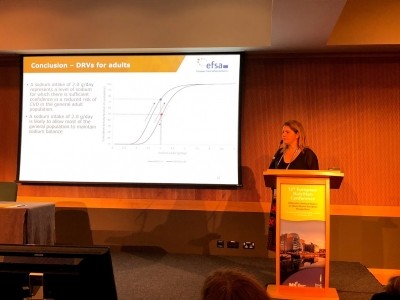Italy moves to have final say on medical purpose food & supplement definitions

In a document published by the Ministry, updated guidelines aim to ‘provide interpretative elements for the correct classification such as food for special medical purposes (FSMP), especially the need for its distinction from food supplements.’
The document goes on to read, “In the event of litigation due to interpretative differences, resulting from the classification of one same product as AFMS in one Member State and as a food supplement in another Member State, Article 3 of Regulation (EU) 609/2013 allows the Commission to intervene to decide what the correct classification is.
“To this end the Commission can request the European Food and Safety Authority (EFSA) to assess whether, and to what extent, the product in question responds to normative definition.”
While this condition is briefly mentioned, the document does not elaborate further – an omission Luca Bucchini, co-founder and managing director of Hylobates, believes is due to the ‘economic issues at stake’.
“While EFSA is empowered to provide a scientific assessment, when asked, if a product is an FSMP, the new guidelines dropped the reference to such a procedure, in a sign that policy is to keep such decisions at national level.”
“The guidelines are useful. However, in order to conduct high quality research, companies need to be able to operate at least on an EU scale,” he added. “Therefore, it would be ideal for guidelines to be agreed at the EU level.”
Scope for more innovation
Bucchini said that while he thought Italy was doing ‘good work in this area,’ the country should be careful in keeping standards high enough even if this may not please all stakeholders.
“There is certainly scope for more innovation in this area, as the population ages, and a fair regulatory environment will support industry and better products.”
Unlike food supplements, FSMP cannot use health or nutrition claims but can provide indications based on clinical studies.
“The assessment of clinical studies and of the indications are up to Member States, not EFSA,” explained Bucchini.
“Hence the rush to FSMP, and the risk of "regulatory shopping" to avoid the severity of EFSA, i.e. a claim is rejected by EFSA on my food supplement, and re-label the supplement as a FSMP using the studies rejected by EFSA as evidence, while keeping essentially the same claim.”
Vitamins and minerals’ max limit
Other guidelines in the document seek to clarify food supplements that cannot be classified as FSMP if they contained vitamins and minerals that comply with maximum limits.
“Only vitamin levels that would be unsafe for the general population can prompt classification as FSMP, for example very high vitamin A for patients with cystic fibrosis,” said Bucchini.
Other examples of FSMP classification include the use of amino acids for the dietary management of inborn metabolic diseases and high-dose glutamine for the dietary management of disorders resulting from therapeutic treatments such as chemo and radiotherapy.
The document also permits the FSMP classification of butyrate for the dietary management of cholopathies as well as products with Docosahexaenoic Acid (DHA) for dietary management of cystic fibrosis.
“Such decisions are very important because, for some patients, FMSP are reimbursed by Italy's Health Services and fiscal incentives are provided for all FSMP but not for food supplements,” Bucchini pointed out.
Criteria for human trials
The new edition of the guidelines also indicate the criteria for conducting human trials, defining category parameters including those for sodium replacement salts, low protein products, oral rehydration solutions, enteral feeding solutions, special formulas for infants, including formulas for preterm births or low birth weight.
Bucchini said that such detailed guidelines were rare in the EU, and, although the interpretation of EU law in reference to FSMP varies slightly among Member States, businesses and experts took into consideration Italian guidelines for their degree of detail.
“The category of FSMP is popular in other Member States, including Germany but I do not think other Member States will follow with issuing similar guidance,” he said.
“However, there may be a tension within brands with a traditional focus, and expertise, in FSMPs, which may prefer a highly regulated environment such as the case with infant formula.
“New entrants that may favour a more liberal approach, which would not prevent migration from food supplements to FSMP status.”
















